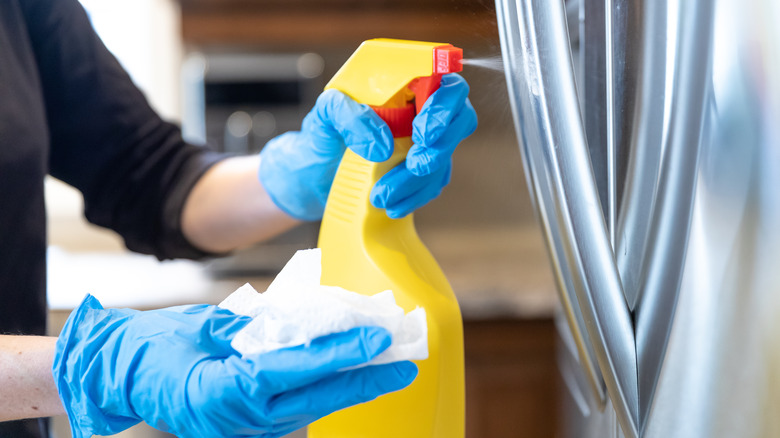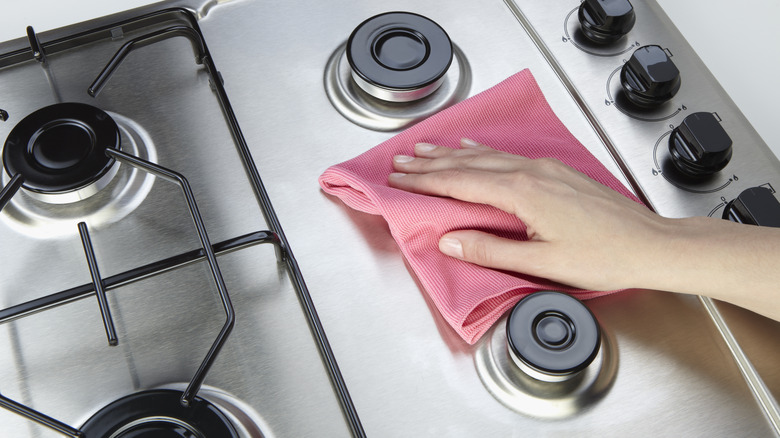Cleaning Habits To Prevent Rust & Keep Stainless Steel Appliances Sparkling
We may receive a commission on purchases made from links.
Is your once shiny and sparkling stainless steel refrigerator, oven, or dishwasher looking a little rough these days? While the "stainless” in stainless steel leads one to believe this material is immune to stains, it can actually rust when exposed to the right conditions. While there are many methods for removing rust from stainless steel surfaces, like baking soda and lemon juice, it's best to be proactive and get ahead of the damage before it begins. Fortunately, there are some simple cleaning habits you can put into practice that will help prevent rust from forming. These include regularly wiping down your appliances, using mild cleaning solutions, and avoiding the use of harsh abrasives.
Stainless steel is made from a variety of different elements, including iron, carbon, and chromium. Chromium acts as a protective body guard for your stainless steel surfaces, but when that layer is compromised and the steel is exposed, it can lead to rust. But this fate is avoidable with a few simple cleaning habits.
Regularly wipe down stainless steel appliances with mild cleaning solutions
While you may regularly clean your kitchen, how often are you cleaning your stainless steel appliances? When you aren't in the habit of wiping down your stainless steel refrigerator or stove, grease and grime can build up on the surface, which can damage the protective chromium material. To combat this fate, commit to cleaning your stainless steel appliances once a week.
As far as what to clean your appliances with, keep it gentle and mild. Harsh chemicals like bleach can corrode stainless steel's protective surface, exposing it to air and moisture, which can lead to rust. There are specialty stainless steel cleaners available, such as Weiman Stainless Steel Appliance Cleaning Wipes, available at Walmart for just under $5. As one of the most versatile cleaning tools available, vinegar can also successfully clean stainless steel, followed by wiping with olive oil. A few drops of dish soap mixed with warm water can also serve as an effective cleaning agent for stainless steel.
Use soft cloths and be wary of hard water
In addition to the type of solution you are using to clean your stainless steel appliances, you'll want to be mindful of the cleaning tools you are using as well. Be careful not to use harsh scrubbers or pads, as this can scratch the surface of your appliance, potentially leading to rust. While scouring pads may be useful for attacking grime on other surfaces, stick with soft cloths and rags for this task. You can purchase a set of 12 microfiber cleaning cloths for around $6 on Amazon.
Finally, if your home has hard water, you'll want to be mindful of this when cleaning your stainless steel appliances. Hard water can cause many horrors in your home, including leaving streaks on stainless steel, which can potentially lead to rust over time. To avoid this, you can use filtered or distilled water if available. Either way, always be sure to thoroughly dry your stainless steel appliance after cleaning.


